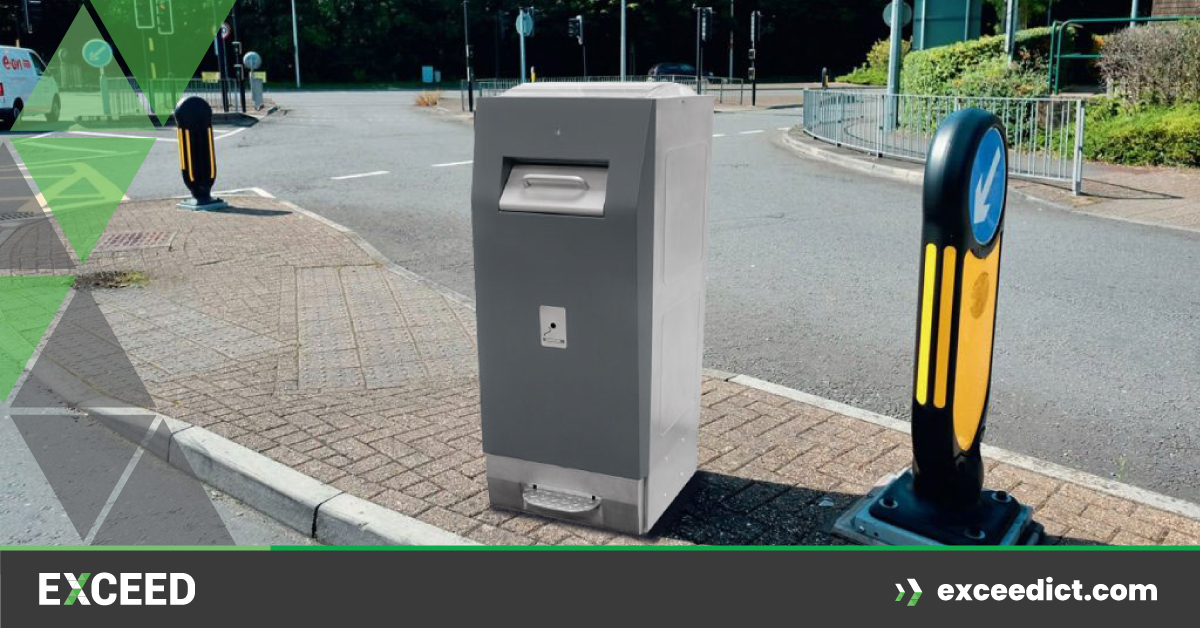
As Australia’s cities grow and evolve, the concept of “smart cities” is rapidly gaining traction. These modern urban centres integrate advanced technology to improve the quality of life for residents, enhance efficiency, and promote sustainability. One innovative solution that’s catching on is the use of smart dustbin – a modern twist on waste management that’s turning heads in cities across Australia. Smart dustbins are designed to monitor waste levels, provide data-driven insights, and streamline collection processes, making them a perfect fit for the country’s vision of sustainable, tech-forward urban living. This article explores how Smart Dustbins for Smart Cities can revolutionise waste management in Australia, setting a new benchmark for efficiency and environmental care.
Understanding Smart Dustbins for Smart Cities

So, what exactly are smart dustbins? Unlike your typical rubbish bins, smart dustbins are equipped with sensor technology that can detect how full the bin is, often in real-time. These bins connect to the Internet of Things (IoT), allowing data to be sent directly to waste management teams. This means councils and waste operators can monitor bin levels remotely, knowing exactly when a bin needs emptying – and avoiding unnecessary trips. By leveraging this technology, smart dustbins aim to tackle overflow, cut down on waste-related issues, and contribute to a cleaner, greener urban environment.
Importance of Smart Dustbins in Smart Cities
Smart dustbins fit right into the blueprint of a smart city by supporting streamlined, tech-enabled public services. They do more than just hold rubbish; they help city planners and waste management teams optimise collection routes, reduce fuel consumption, and minimise labour costs.
In Australia, where cities like Sydney and Melbourne are already pushing forward with smart city initiatives, adopting smart dustbins makes perfect sense. These bins can significantly improve efficiency, helping cities meet their environmental targets and boost urban cleanliness – a win for both residents and the planet.
How Smart Dustbins Work?
Smart dustbins operate through a combination of sensor technology, data collection, and IoT connectivity. These bins are equipped with sensors that detect the level of waste inside and monitor the fullness of the bin. When the waste reaches a certain level, the sensor sends a signal to a central waste management system, alerting teams to come and empty the bin. This real-time data allows waste collection teams to optimise their routes and schedules, ensuring bins are emptied only when necessary, reducing unnecessary trips.
Smart dustbins also collect data on usage patterns, enabling smarter decision-making regarding waste management strategies. For example, in high-traffic areas, bins may fill up quicker, and the system can adjust collection timings accordingly. Visual aids like digital dashboards showing waste levels or interactive maps showing bin fullness in real-time can give city planners valuable insights for better urban planning.
Examples of Smart Dustbin Implementation in Australia
Several Australian cities have already started embracing smart dustbins as part of their smart city plans. For instance, Sydney’s CBD has been testing smart bins that alert waste collection teams when they’re nearing capacity. These bins are even solar-powered, adding an eco-friendly edge to their operation.
Melbourne’s city council has also piloted similar projects in busy areas, aiming to keep public spaces cleaner and reduce the frequency of bin emptying trips. These examples showcase just how effective smart dustbins can be in transforming urban waste management in a way that benefits both city staff and residents.
Benefits of Smart Dustbins for Waste Management in Australian Cities

The benefits of smart dustbins extend far beyond just convenience – they bring significant environmental, economic, and logistical advantages. By providing real-time data on bin fullness, these bins help reduce operational costs by enabling waste collection teams to optimise their routes. Fewer trips to empty bins means reduced fuel consumption, lowering the carbon footprint of waste collection vehicles.
Moreover, smart bins contribute to a cleaner environment by preventing overflowing bins, which can attract pests or create unsightly litter. In terms of hygiene, smart dustbins are often designed to be more durable and easier to maintain, reducing the risk of odour and bacteria build-up. For Australian cities that are already pushing for sustainability, smart dustbins represent a key step towards reducing landfill and improving the efficiency of waste management operations.
Challenges in Adopting Smart Dustbins in Australia
While the potential of smart dustbins is undeniable, there are still challenges to overcome in their widespread adoption across Australian cities. The initial installation costs of smart dustbins can be significant, with the upfront expense of purchasing and setting up the necessary technology. Additionally, regular maintenance and the need for a robust IT infrastructure to manage the data these bins collect can be ongoing concerns.
Another challenge is data privacy – with real-time monitoring of waste levels, there’s the potential for misuse of data, particularly regarding location and usage patterns. However, these challenges can be mitigated through partnerships between local governments and private sector innovators. Governments could subsidise the costs or offer grants to support the installation of smart technology, while data security measures could be put in place to ensure compliance with privacy regulations, helping to address any concerns.
The Future of Waste Management with Smart Dustbins
Australia’s waste management future looks bright, thanks to innovations like smart dustbins. We’re not just talking about bins that can tell when they’re full; the potential exists for smart dustbins to work hand-in-hand with other smart city technologies. Imagine bins that can process data to predict peak times for rubbish and adjust collection schedules accordingly – or even alert maintenance crews if there’s an issue. As more Australian cities get on board, we’re looking at a future where waste management is smarter, cleaner, and fully aligned with our environmental goals.
In conclusion, smart dustbins for smart cities are set to play a transformative role in Australia’s waste management landscape. These innovative bins not only streamline the waste collection process but also contribute to a cleaner, more sustainable urban environment. By reducing operational costs, improving hygiene, and supporting environmentally friendly practices, smart dustbins align perfectly with the goals of smart cities. As we look towards a smarter, more tech-driven Australia, the adoption of smart dustbins is a critical step in creating a more sustainable future for all. Embracing this technology today will not only improve waste management efficiency but also pave the way for more sustainable cities tomorrow.


